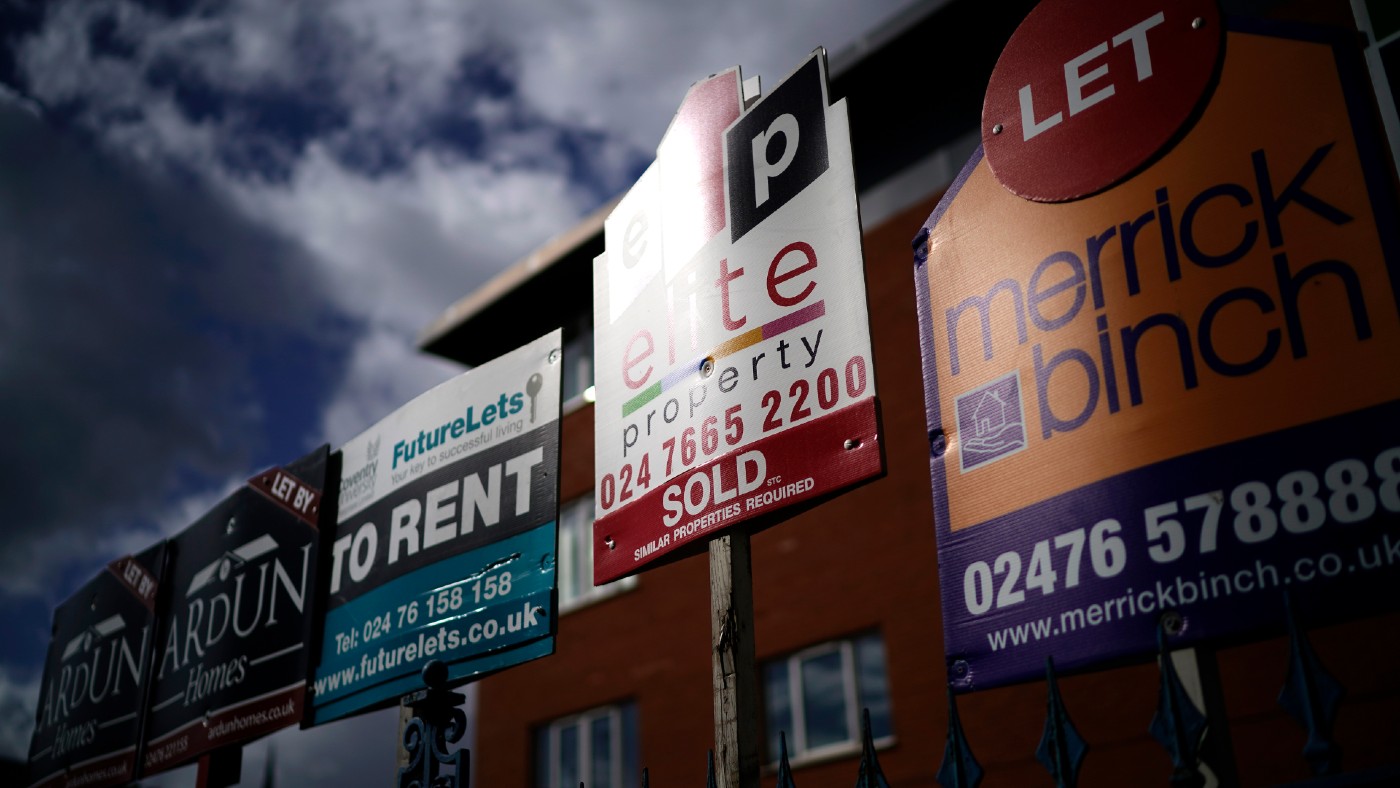Is now a good time to buy or sell homes - and will there be a post-Covid city exodus?
Property prices have fallen for four consecutive months amid widespread uncertainty

A free daily email with the biggest news stories of the day – and the best features from TheWeek.com
You are now subscribed
Your newsletter sign-up was successful
The coronavirus crisis has wreaked havoc on the UK property market, forcing estate agents to close their doors and suppressing demand.
But with the country now beginning to open up again and many people considering a move, is now a good time to buy or sell a home?
What has happened to house prices?
The Week
Escape your echo chamber. Get the facts behind the news, plus analysis from multiple perspectives.

Sign up for The Week's Free Newsletters
From our morning news briefing to a weekly Good News Newsletter, get the best of The Week delivered directly to your inbox.
From our morning news briefing to a weekly Good News Newsletter, get the best of The Week delivered directly to your inbox.
When Britain first entered lockdown, thousands of house moves were put on hold, causing many sales to fall through entirely.
“Some 73,500 mortgage approvals were made in February alone – the highest monthly figure in six years”, says The Sun. “But then Covid-19 hit, causing havoc for housing chains across the country.”
The Guardian reported in April that almost 400,000 home sales worth a total of £82bn were in hiatus.
The impact on the market of this nationwide freeze was severe. Mortage lender Halifax last week confirmed that house prices had fallen for four consecutive months, for the first time since 2010. Property prices in March were 0.3% lower than in February, followed by further dips of 0.6% in April, 0.2% in May and 0.1% in June.
A free daily email with the biggest news stories of the day – and the best features from TheWeek.com
However, despite the declines, property values in June across the UK were still 2.5% higher than the same time the previous year.
And Halifax managing director Russell Galley is predicting the outlook for house prices going forward is brighter than many people may think, The Independent reports.
“We do expect greater downward pressure on prices in the medium term, the extent of which will depend on the success of government support measures and the speed at which the economy can recover,” he said.
Will prices rise or fall in the future?
“It’s a complex picture,” according to The Independent.
North London estate agent Jeremy Leaf, a former residential chair of the Royal Institution of Chartered Surveyors (RICS), says that while prices have fallen in recent months, “new mortgage inquiries are surging as buyers and sellers emerge from lockdown”.
“The direction of travel in coming months will depend on the degree of support offered by the government and how quickly the economy can recover when furlough in particular is withdrawn,” Leaf explains.
In a bid to boost the market, Chancellor Riski Sunak has unveiled plans to increase the stamp duty threshold from £125,000 to £500,000 on residential properties sold in England and Northern Ireland between 8 July 2020 and 31 March 2021.
Aided by such interventions, the long-term impact on the market may end up being negligible, argues MovingHomeAdvice.com’s Russell Quirk.
“Property prices will not, in my opinion, now drop as a consequence of Covid uncertainty or anxiety. Demand is too strong and market fundamentals that drive demand remain robust,” Quirk says.
Where are people moving?
Home buyer web traffic suggests the UK may be on the brink of a “mass exodus” from cities to the countryside, the London Evening Standard reports.
According to data from major property websites, the number of home searches by people in London, Edinburgh, Birmingham, Liverpool, Sheffield, Glasgow and Bristol looking at property outside their cities has risen, “as people in lockdown reassessed their lives”, the newspaper says.
It wouldn’t be the first time a pandemic has seen city-dwellers to flee to the country.
The same pattern has occurred in previous centuries, but “while previous pandemics have eventually pushed populations back into cities in search of better healthcare and connectivity, this time round, technology may end up cementing the mass exodus”, says The Telegraph.
As companies have reorganised their operations to allow employees to work remotely, potentially for good, “rural estate agents have reported a surge in interest from people looking to relocate”, the newspaper adds.
According to a survey of of buyers by property firm Savills in the week starting 21 April, 40% of buyers aged under 40 were looking to move to a village location, rising to more than 50% among people with school-aged children.
Rupert Sweeting, head of national country sales at Knight Frank, told The Telegraph that while inner-city terror incidents have previously sparked fleeting interest in country living, the coronavirus pandemic has had a more profound impact.
“People have reassessed their lives completely – a lot of people rented in the country immediately or were in their second homes already for lockdown and now realise they don’t need to be in the city,” he said.
Nevertheless, urban living will still be attractive to many people, the newspaper argues, and “megacities – with all they have to offer – continue to grow”.
“It’s important to note that we still expect the prime central London market to lead recovery,” said Lucian Cook, head of residential research at Savills. “Moving to the country is not for everyone, after all.”
Arion McNicoll is a freelance writer at The Week Digital and was previously the UK website’s editor. He has also held senior editorial roles at CNN, The Times and The Sunday Times. Along with his writing work, he co-hosts “Today in History with The Retrospectors”, Rethink Audio’s flagship daily podcast, and is a regular panellist (and occasional stand-in host) on “The Week Unwrapped”. He is also a judge for The Publisher Podcast Awards.